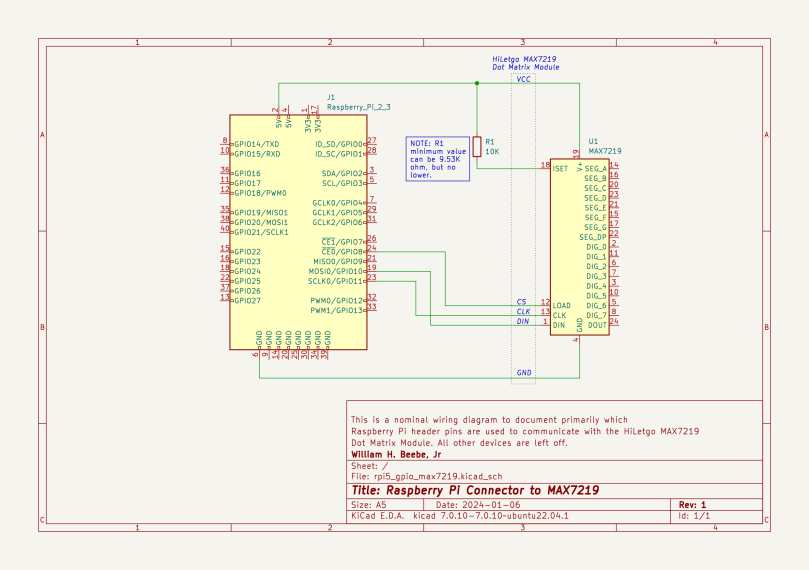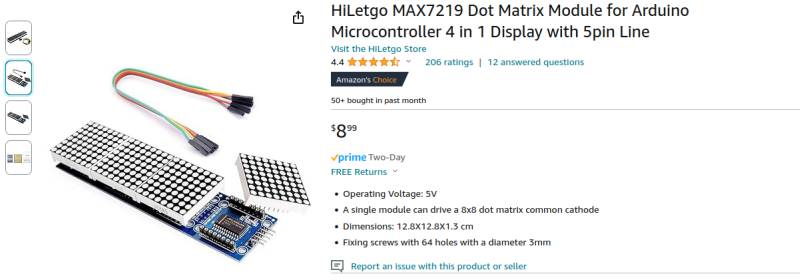
You’re looking at a very simple circuit diagram, where I’ve wired a HiLetgo MAX7219 Dot Matrix Module to the Raspberry Pi 5 via its 40 pin connector. In spite of the add for the module on Amazon (see below) it works just fine with the Raspberry Pi and a Python library, Luma.LED_Matrix, I found on the web (see links below).

All I wanted to do was hook up one of these inexpensive four-character modules to a Raspberry Pi 5 and scroll text across it using Luma.LED_Matrix. It does not work with Ubuntu 23.10. It works just fine with the latest release of Debian GNU/Linux 12, a.k.a. Raspberry Pi OS. The problem is that Ubuntu 23.10 does not enable the SPI kernel drivers. Raspberry Pi OS does.

The screen capture above shows what the SPI devices will appear as in the dev file system if the kernel drivers are properly configured for the SPI peripherals. When you try this on Ubuntu all that is shown is /dev/spidev10.0. The other two devices are missing.
There’s not much more to say at this point except I am extremely aggravated to have to back down to Raspberry Pi OS. Ubuntu 23.10 is a gorgeous UI and a highly performant distribution on the Raspberry Pi 5. Getting it set up was no different than on an x86-64 system, and once set up was indistinguishable from normal Ubuntu. All the tools worked, especially Visual Studio Code, and I was developing command line tools written in Rust. It was a breeze doing anything non-trivial. Until I tried physical computing, at which point Ubuntu’s limitations in those areas became evident.
It’s not a problem to physically switch between operating systems. I just don’t want to, and based on my experience so far with Ubuntu 23.10, I will be dragged back kicking and screaming to Raspberry Pi OS on the Raspberry Pi 5. As soon as I can come up with a good solution to this mess, I’ll post it.
Links
Luma.LED_Matrix — https://github.com/rm-hull/luma.led_matrix


You must be logged in to post a comment.